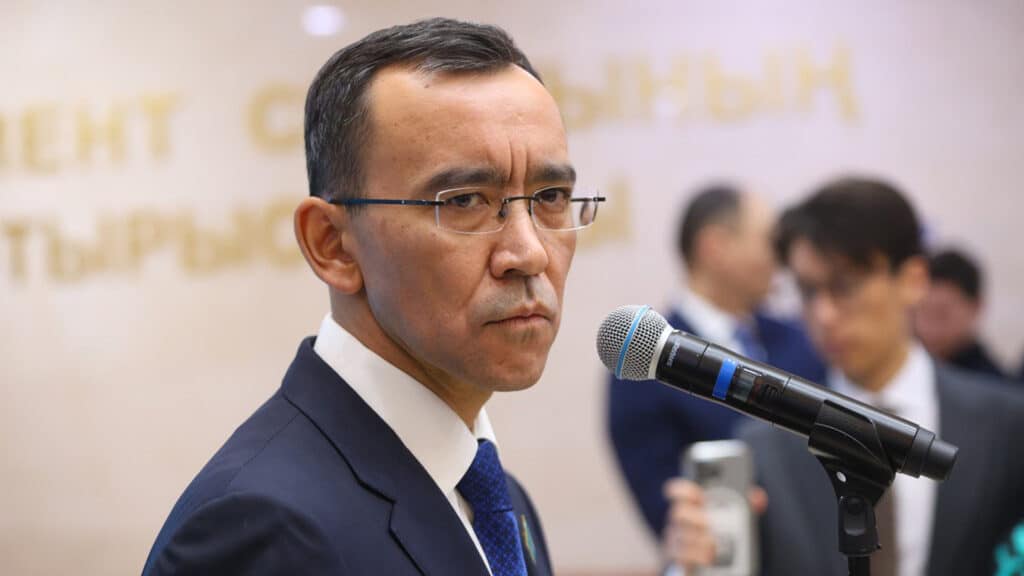“Adapt or die:” Speaker of Senate reveals how Kazakhstan plans to develop in the near future

Maulen Ashimbayev, the speaker of the Senate (the upper chamber of Kazakhstan’s parliament), has written an article titled «Logic of Reforms 2.0: In the Fairway of the Age.» In the text, published in the Vremya newspaper (time.kz), the official emphasized that with Donald Trump returning as U.S. president, the world is transitioning to a new order. He stressed that the motto «Adapt or die» is more relevant than ever. In his article, Ashimbayev shared his vision of what must be done to address the situation.
He believes that more and more countries are leaning toward protectionist policies, which could lead to new trade wars. According to Ashimbayev, trade will become centralized within geopolitical blocs rather than between them. Moreover, competition for investments is intensifying, as foreign direct investment (FDI) inflows to Central Asia plunged by 39% last year.
The speaker said that Kazakhstan must first and foremost reduce the state’s role in the economy. The government has already introduced a moratorium on creating new state-owned companies and is committed to completing mass privatization by 2028.
Authorities also plan to digitize all data on agricultural land. Access to this information will be available only through open online auctions. The same method will apply to any other land with proven mineral reserves. The country will also transition from directly subsidizing farmers to providing affordable, easy loans.
Over the next three years, Kazakhstan will gradually remove all pricing and tariff restrictions. This will help eliminate non-market mechanisms that have contributed to the deterioration of infrastructure in recent years.
«The basic principle of state support — in exchange for real economic growth, innovation and expanded market access — will be extended to sectors that currently rely on government aid without obligations. These policy changes will gradually become part of daily life over the next several years,» Ashimbayev wrote.
He also shared his views on business challenges, pointing out that oligopoly, corruption and a lack of long-term loans and serious investments are the main obstacles to business development in Kazakhstan.
«We need to free private initiatives capable of driving technological production. We must remove all hurdles that are unrelated to business risks. Excessive inspections are the shortest path to corruption,» Ashimbayev emphasized.
He also noted that potential investors avoid Kazakhstan due to overly complex bureaucratic procedures. To address this, authorities should simplify regulations, digitize all state processes and consolidate public services into a single online platform.
«Sometimes, starting the construction of a manufacturing site requires obtaining about 60 different permits. As a result, net FDI inflows into our economy have been declining for several years, while many other countries compete aggressively for investors,» the Senate speaker said.
Ashimbayev argued that Kazakhstan is not directing its investments into the most promising economic sectors, as funds are largely concentrated in commodity industries rather than efficient sectors.
He also stressed that the country must develop a package of incentives to promote investment projects focused on exporting Kazakhstani products.
«This will attract high-quality investments into the economy,» he said.
Another challenge for Kazakhstani businesses is low level of lending for entrepreneurs, he added.
«This issue particularly affects medium-sized businesses — the most promising economic segment for industrial development. Currently, loans account for less than 4% of total fixed capital investment in Kazakhstan, while in industrially developed countries, this figure ranges from 30% to 50%,» Ashimbayev explained.
He emphasized that banks must be incentivized to provide business loans. To achieve this, the government could ease regulatory requirements for banks that finance the real sector and offer tax reductions for them.
«On one hand, we propose relaxing regulatory requirements for banks that lend to the real economy. On the other, we suggest increasing taxes on transactions involving government-issued securities while lowering the tax burden on loans to the manufacturing sector. These mechanisms will be integrated into the new Tax Code,» Ashimbayev noted.
The official also stressed that Kazakhstan must implement a difficult but necessary tax reform. At the same time, authorities plan to optimize public expenditures to reduce the budget deficit.

